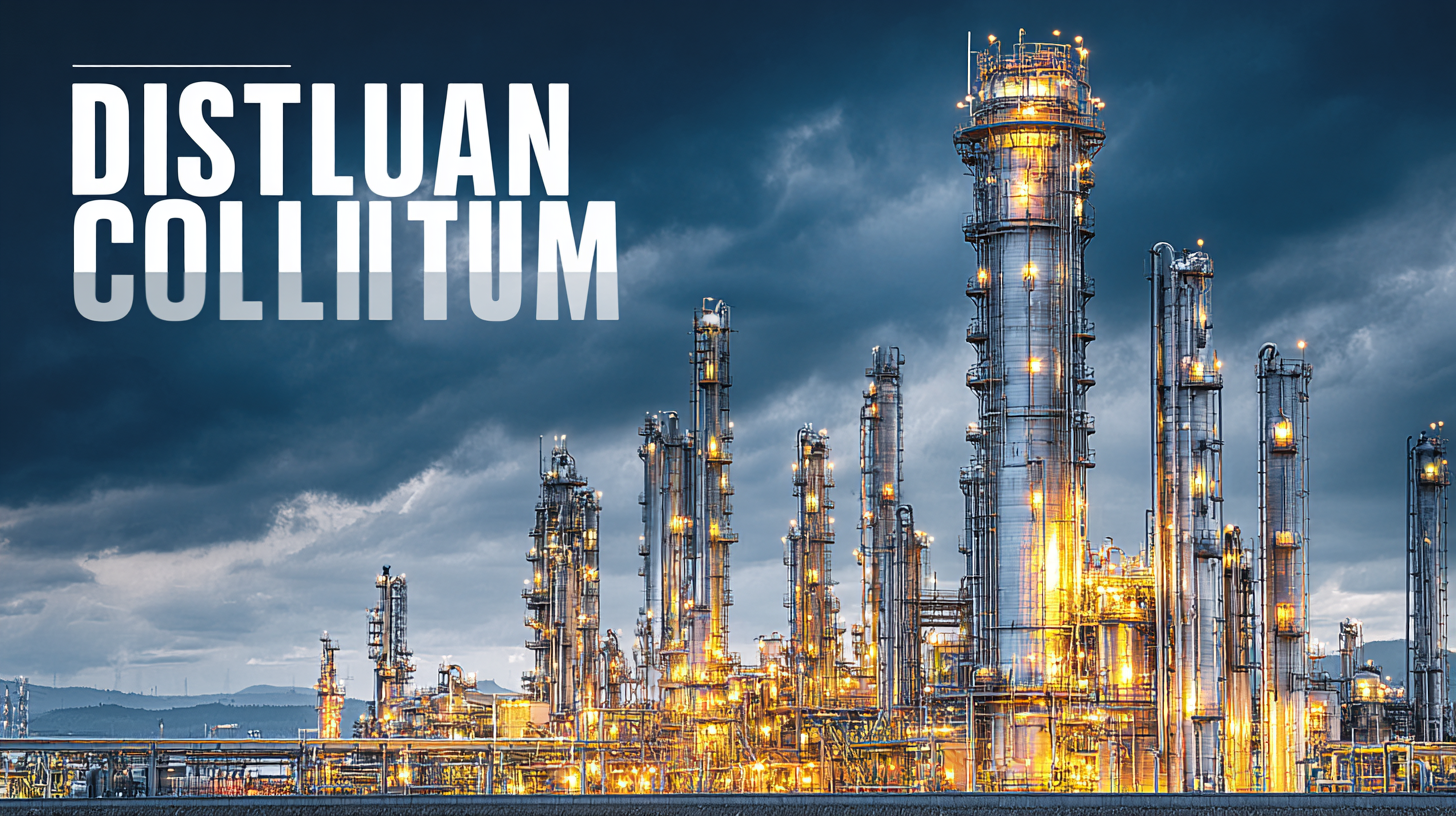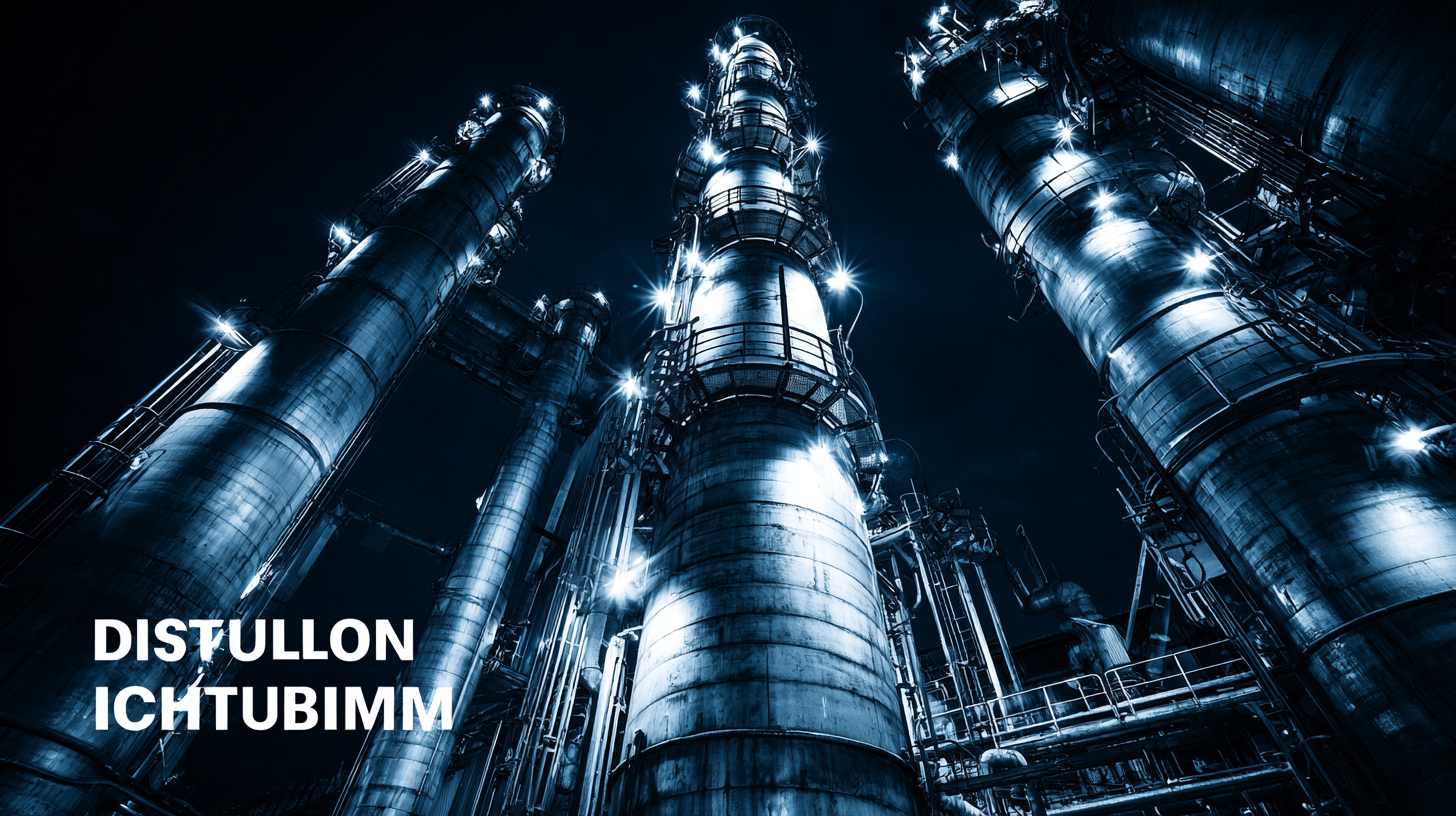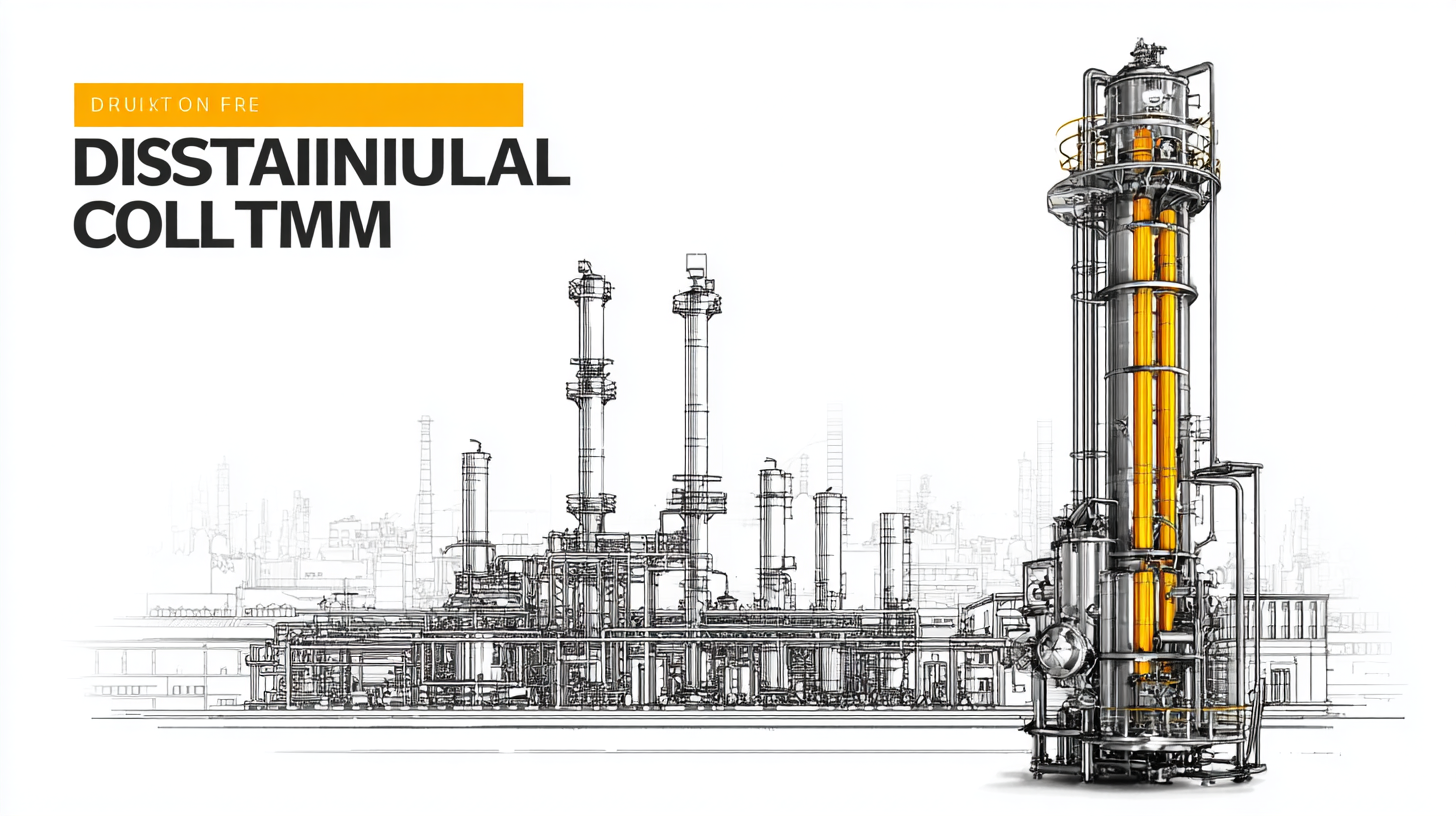
How to Choose the Best Industrial Distillation Column for Your Needs
In the ever-evolving landscape of industrial processes, the selection of the right equipment is crucial for optimizing performance and ensuring efficiency. Among the various components critical to these processes, the Industrial Distillation Column stands out as a vital element in separating mixtures and enhancing product purity. As industries increasingly prioritize precision and quality to meet global standards, understanding the factors that influence the choice of an Industrial Distillation Column becomes essential. This blog will guide you through the fundamental aspects to consider, including the specific requirements of your operation, the desired outcomes, and the technological advancements available in the market. By tailoring your choice of distillation column to your unique needs, you can ensure that your manufacturing processes align with the motto "精工细造,中国制造,服务世界", reflecting a commitment to excellence that serves the world.

Understanding Your Distillation Needs Before Choosing a Supplier
When selecting a distillation column, understanding your specific distillation needs is crucial to making an informed choice. Factors such as the type of liquid being distilled, the desired purity of the end product, and the scale of operation play significant roles in determining the appropriate column design. A recent industry report highlighted that about 70% of industrial users prioritize efficiency and operational flexibility when choosing distillation equipment, reflecting the importance of tailored solutions to meet diverse needs.
Moreover, with supply chain challenges affecting various industries, including the distillation sector, it's essential to consider reliable suppliers who can provide consistent service and support. Recent insights indicate that manufacturers are increasingly moving to larger facilities to better address storage and distribution issues, which enhances their ability to deliver customized solutions. The rise in demand for distilled products, particularly due to health-related concerns, underscores the importance of selecting a supplier that not only understands the technical specifications but also has the capacity to ensure quality and reliability in their offerings. Thus, engaging with experienced suppliers who can align with your operational goals becomes paramount in streamlining your distillation processes.
Key Factors to Consider When Evaluating Distillation Column Suppliers
When evaluating distillation column suppliers, several key factors should be taken into account to ensure you select the best option for your industrial needs. Firstly, assess the supplier's experience and reputation in the industry. A supplier with a longstanding presence and positive client feedback can provide assurance regarding the quality and reliability of their products. Investigate their portfolio of past projects to gauge their expertise in specific applications relevant to your operations.
Another crucial factor is the technical support and services offered by the supplier. A good supplier should provide comprehensive support throughout the lifecycle of the distillation column, including installation, maintenance, and troubleshooting. Look for suppliers who offer customization options tailored to your specific requirements, as this can enhance the efficiency and effectiveness of your distillation processes. Additionally, consider the availability of spare parts and the supplier's commitment to timely service, as these aspects play a vital role in minimizing downtime. By carefully evaluating these factors, you can make an informed decision that aligns with your operational goals and improves overall productivity.
How to Choose the Best Industrial Distillation Column for Your Needs - Key Factors to Consider When Evaluating Distillation Column Suppliers
| Factor | Description | Importance (1-10) |
|---|---|---|
| Column Type | Evaluate if you need a packed or tray column based on separation efficiency. | 8 |
| Material of Construction | Consider corrosion resistance and temperature tolerance of materials. | 9 |
| Height and Diameter | Ensure the dimensions match the space available and process requirements. | 7 |
| Throughput Capacity | Determine the volume of material that needs to be processed. | 10 |
| Energy Efficiency | Look for designs that minimize energy consumption during operation. | 8 |
| Control Systems | Evaluate the automation level and ease of control integration. | 7 |
| Maintenance Requirements | Consider the ease and costs associated with regular maintenance. | 6 |
| Supplier Experience | Research the supplier's reputation and track record in the industry. | 9 |
Researching Supplier Reputation and Industry Experience
When selecting the right industrial distillation column, understanding supplier reputation and their industry experience is pivotal. A reputable supplier often reflects a history of reliability and product quality. Researching their track record can provide insights into how they handle projects similar to yours. Look for customer reviews, case studies, and any certifications that demonstrate their commitment to excellence. Engaging with previous clients can also reveal valuable information about the supplier's responsiveness and support during and after the installation process.
Additionally, industry experience plays a crucial role in determining the capability of a supplier. An experienced supplier will possess in-depth knowledge of various applications and regulatory requirements, which can help tailor the distillation column to meet specific operational needs. Evaluate how long the supplier has been in the business and their involvement in relevant sectors. Their ability to adapt innovations in distillation technology while understanding industry trends will ensure that you are investing in a solution that remains effective and efficient for years to come.
Assessing Quality Assurance and Compliance Standards in Suppliers
When selecting an industrial distillation column, understanding the quality assurance and compliance standards of suppliers is paramount. According to a recent report by the International Society for Pharmaceutical Engineering (ISPE), nearly 70% of industry professionals cite supplier quality as a critical factor affecting overall production efficiency. Suppliers must meet stringent quality assurance protocols to ensure that their columns not only perform effectively but also adhere to safety and regulatory guidelines.
Furthermore, the American Society for Quality (ASQ) highlights that compliance with ISO 9001 standards can significantly enhance a supplier's reliability. This standard requires rigorous testing and documentation processes, ensuring that each distillation column is manufactured to meet predetermined specifications. Additionally, the market analysis from MarketsandMarkets indicates that the industrial distillation equipment market is projected to grow to $16.54 billion by 2025, emphasizing an increasing demand for compliance and quality assurance in the supply chain. Therefore, meticulous attention to these standards when evaluating suppliers will ultimately lead to improved process reliability and performance in distillation applications.

Exploring Customer Support and After-Sales Service Options
When choosing an industrial distillation column, it’s crucial to consider not just the equipment itself, but also the customer support and after-sales service options available. Industry reports indicate that companies prioritizing strong customer service tend to retain clients and see higher satisfaction rates. For instance, a report from a leading market research firm found that organizations with robust after-sales support experience a 20% increase in customer loyalty, which is vital in the competitive industrial sector.

Moreover, as industries navigate the challenges of digitalization and evolving technologies, having access to comprehensive service solutions becomes more critical. As seen in recent innovations, offering training and maintenance services can significantly enhance operational efficiency. Companies that invest in after-sales services, including training for their personnel, are more likely to maintain optimal performance levels for their distillation columns, reducing downtime and maximizing productivity. This strategy not only strengthens customer relationships but also positions firms favorably in a rapidly changing market landscape.
